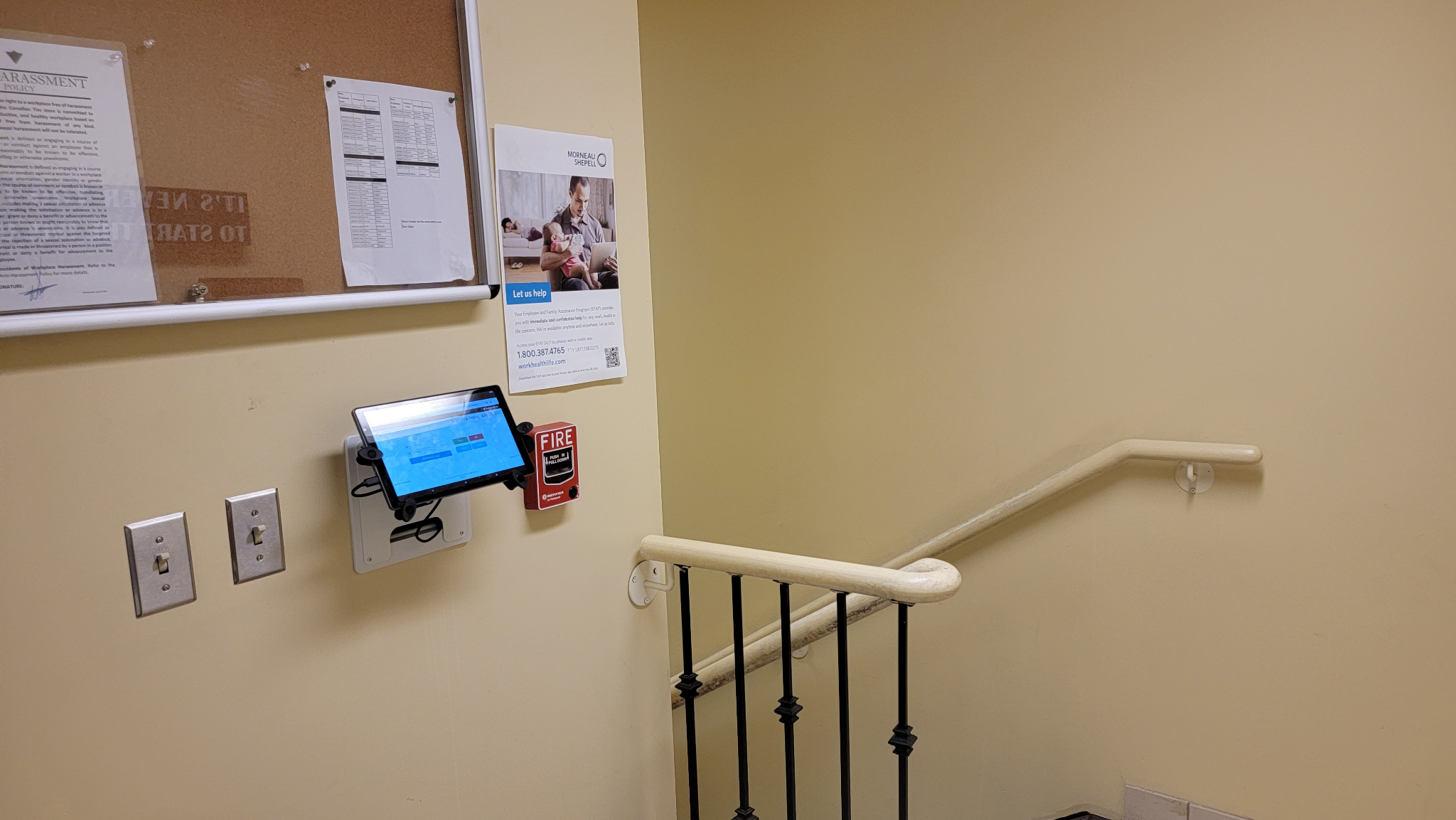Life Before & After TimeWellScheduled at Canadian Tire
In this case study, learn how TimeWellScheduled’s cloud-based software helped Canadian Tire overcome scheduling challenges and reduce labor costs.
The Canadian Tire Corporation is a Canadian retail staple that operates 503 stores nationally in the automotive, hardware, sports, leisure, and housewares sectors.
The company has been successfully providing Canadian consumers across the country with everything from groceries to home appliances and automotive parts and services since 1921.
In August 2021, based on a survey of 3714 shoppers, Canadian Tire Retail was selected as “Canada’s Most Respected General Merchandise Retailer.” Among the top five most respected retailers were: Costco, Staples, Best Buy, and Couche-Tard.
Case Study
Canadian Tire 885 Fairville Blvd. Saint John, New Brunswick
“The Canadian Tire store at Saint John Fairville, NB offers a variety of products including automotive, tools, hardware, sports, household, and outdoor living. This location also has an auto centre for car repair & maintenance.”
PROBLEM
The older time and attendance system led to issues:
Reconciling total hours paid versus total hours scheduled
In sum, the old system was inflexible, time-consuming, unreliable, inaccurate, and costly.
SOLUTION
TimeWellSchedule’s Cloud-based Scheduling Software
Mike Denomme has been with Canadian Tire for 31 years and is the General Manager of the store in Saint John, New Brunswick. Mike oversees 49 employees and 10 managers in the heart of the most populous city in the province.
We asked Mike:
What do you pride most about your store?
Mike's answer
Mike’s Canadian Tire lives by those words; in 2017 the store implemented TimeWellScheduled’s scheduling solution and hasn’t looked back. So we surveyed Mike to learn more about his experience with TimeWellSchedule’s (TWS) Cloud-based scheduling software.
Spend 80% less time on scheduling

4.7 (752 reviews)
Problem #1:
Reconciling total hours paid versus total hours scheduled.
We asked Mike:
Mike's answer
Scheduling reconciliation is the process of comparing the current pay period’s total labor hours to the number of hours paid. The purpose is to ensure that both figures match. Reconciling is a final check to ensure labor hours expenses are accurate and within the planned budget.
Labor hour reconciliations are an important procedure, as a company’s labor constitutes the largest component of the Indirect Cost Rate (ICR).
At Canadian Tire in Saint John, the old system was less accurate and unreliable, making it challenging to plan and control labor expenses. What’s more, the system was time-consuming as it required managers to manually input each of the 49 employee’s hours.
Problem #2:
Communication of Scheduling
We asked Mike:
Mike's answer
If you are a retail manager or employee this response may make you smile, cringe or even chuckle. But, this is one of those legacy traditions that has become part of the retail culture. It works, sort of…
Canadian Tire in Saint John’s, before 2017, used the traditional way of communicating current and future staff schedules by printing and posting them in a common area. Schedules were usually posted in advance, allowing employees time to check their schedules and plan their work and personal lives accordingly.
For instance, when employees found that their work schedule conflicted with something important in their personal life, such as a family event or medical appointment, they could work with management to swap shifts with another employee.
Similarly, open shifts were usually posted in the staff room on a piece of paper or post-it note. Time off requests were communicated in the same way, handwritten on paper or form and submitted. Managers would follow up with verbal announcements or phone employees who were available.
For the most part, the system worked. However, it was inefficient, stressful, and often did optimize scheduling capacity. Further, on occasion, shifts would go unfilled due to limited communication options.
In the traditional system typical scheduling issues such as open shifts, time off requests, and employee availability; were not optimally managed. Many organizations still use this scheduling process today; the system is functional but far from optimal and it wastes time and money.
Problem #3:
The old system was cumbersome, requiring manual input for each employee’s hours
In 2022, it may seem odd but, 25% of small-to-medium sized businesses still use pen and paper for their payroll records. A recent study by the American Payroll Association has found 30% of businesses use a payroll system that is 10 years old or older.
In many retail operations, Canadian Tire included, manual scheduling systems often result in over- or understaffed shifts. The labor costs are challenging to forecast with staff having to work extra hours or employees being assigned to shifts without actual business necessity.
Manual scheduling systems are often simple to use. However, in many cases, older software solutions were not solely designed for shift scheduling. For example, retail scheduling is dynamic and requires the flexibility necessary to deal with business fluctuations, employee needs, and payroll. Older systems were designed to calculate, print but not adapt to changing circumstances.
On the administrative side, manual scheduling makes it difficult to keep accurate records of employee attendance and is time-consuming for managers. In addition, these scheduling practices add to labor costs and are unreliable, which can hurt employee morale and even lead to voluntary turnover.
Simply put, manual scheduling and older scheduling systems invariably lead to lower employee productivity, higher costs, and poor use of managerial time.
SOLUTION
TimeWellScheduled’s Cloud-Based Scheduling Software
Integrated Payroll System Replaces Manual Inputting
Today at Canadian Tire in Saint Johns, TWS software provides managers with all the payroll information necessary to calculate, print, and download payroll information into an excel format and then export the data in just minutes.
“We now have the ability to control scheduling, wage costs, and budgets”
– Mike Denomme.
In addition, as a check and balance, schedulers can compare budgets to previous pay periods to check for efficiency and accuracy or if adjustments are necessary. TWS system eliminates the hassle of manually entering time cards!
Improved Communication
TimeWellSchedules solves the communication problem by providing managers and employees with two essential tools, the online portal and the TWS app, available in both the google play store and the iPhone app store.
“We (now) have better control over scheduling, clocking procedures, and managing time off requests”
– Mike Denomme.
Each employee has their own portal to track messages, check their schedule, pick up an open shift, or request time off. Additionally, staff can use the app or online portal to apply for shift swaps on a PC, tablet, or mobile phone.
Online access through the app or employee portal allows managers to modify current or future schedules and quickly communicate them to the entire team.
And to ensure everyone is on the same page, employees and managers receive alerts through their mobile phones or other devices. So a sudden unexpected schedule change does not mean a shift will go unfilled.
“Employees like the ease of clocking in and out. Using the app to see their schedules and requesting time off” – Mike Denomme
Replicate Success with Scheduling Templates
Employee scheduling templates are a calendar for a specific period with employee names and shift times. Managers at Canadian Tire use scheduling templates to assign hours to employees and provide a reliable reference for shift times.
TWS’s Schedule templates allow managers to take selected shifts (a day, an entire week, etc.) and save them for re-use in future schedules. Templates work particularly well for retailers such as Canadian Tire, where shift patterns are similar week-to-week.
There are several benefits to using Scheduling templates:
- Helps plan and control costs
- Ensures everyone is on the same page
- Can be refined and improved over time
- Assists in preparing for unexpected problems
- Allows for the tracking of performance
- Eliminates the need for manual entry
In the case of Canadian Tire, schedule templates reduce the time required to create consistently reliable work schedules and eliminate the need for manual input of employee schedules.
“This is a great tool for budgeting and managing labor costs”
– Mike Denomme, General Manager, Canadian Tire Saint John’s NB.
TimeWellScheduled is the perfect solution for your retail business. Our cloud-based software makes it easy to create and manage employee schedules, and our time clock feature allows employees to clock in and out from any computer or mobile device. Plus, our customer service is always available to help you get the most out of our software. Contact us today to learn more about how TimeWellScheduled can help your retail business optimize performance.
Thank you for reading our article!
About
TimeWellScheduled.com
TimeWellScheduled.com is a secure, online time and attendance software that is 100% tailored to meet your scheduling needs! In addition, TimeWellScheduled facilitates employee attendance tracking & payroll tasks and enhances your staff management capabilities.











